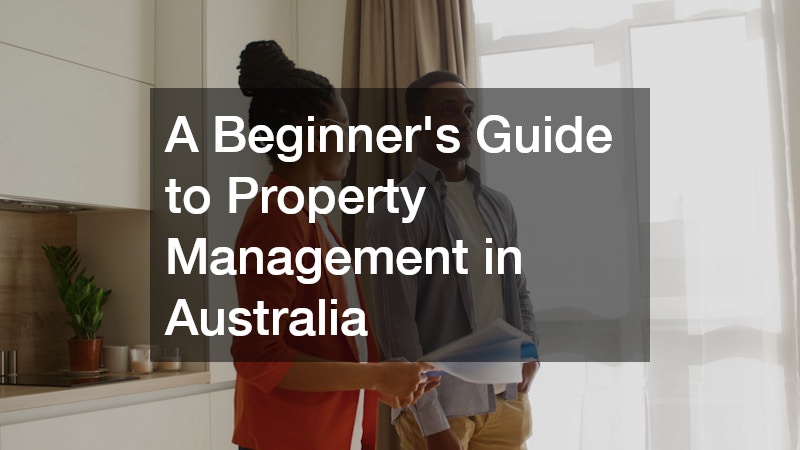Owning an investment property can be a rewarding experience, providing a steady source of income and long-term financial growth. However, managing a property effectively requires a good understanding of various responsibilities, legal obligations best practices. For many new landlords, the world of property management can seem overwhelming at first. This beginner’s guide aims to demystify the process, offering practical advice to help you manage your investment confidently and successfully within the Australian context.
Investing in property is often one of the largest financial decisions you’ll make, so it’s important to approach it with the right knowledge. Knowing what to expect from day one will save you time, money and stress down the track. From understanding your legal duties to maintaining a positive relationship with tenants, each element plays a key role in ensuring your investment performs well. Whether you’re planning to self-manage or hire a professional, this guide will provide you with the foundational information needed to make informed choices every step of the way.
Understanding the Basics
Property management refers to the day-to-day oversight of a rental property, including tasks such as tenant selection, rent collection, maintenance and legal compliance. Many property owners choose to engage professional managers to handle these duties, while others prefer a hands-on approach. Regardless of your choice, understanding the fundamentals is crucial.
In Australia, landlords must comply with state and territory laws that govern rental agreements, bond lodgement, eviction procedures and tenant rights. Familiarising yourself with the Residential Tenancies Act relevant to your location is a vital first step. This knowledge helps ensure you operate within legal boundaries and maintain a positive relationship with your tenants.
Finding & Managing Tenants
One of the most important elements of managing a rental property is tenant selection. A reliable tenant who pays rent on time and respects the property can save you considerable stress. Advertise your property effectively by highlighting its best features and competitive rental price. Use reputable rental platforms popular in Australia, such as realestate.com.au or Domain, to reach a broad audience.
When assessing potential tenants, conduct thorough background checks. Verify employment, rental history and references to reduce the risk of problem tenants. An application form tailored to Australian standards will help you gather the necessary information systematically.
Once a tenant is secured, ensure that the lease agreement complies with local regulations. This document should clearly outline the terms, including rent amount, payment frequency, duration, maintenance responsibilities and house rules. Providing tenants with a copy of their rights and obligations promotes transparency and reduces disputes.
Maintaining Your Investment
Regular maintenance is key to protecting your property’s value and keeping tenants satisfied. Routine inspections allow you to identify issues early and plan repairs proactively. Australian landlords are responsible for maintaining the property in a reasonable state of repair, including safety compliance for electrical, gas and smoke alarm systems.
Develop a maintenance schedule that covers seasonal checks and emergency repairs. Engage licensed tradespeople who are familiar with Australian standards to carry out any work. Promptly addressing tenant repair requests helps build trust and encourages longer tenancy periods.
Consider implementing sustainable practices such as energy-efficient appliances and water-saving fixtures. These not only reduce running costs but can also attract environmentally conscious tenants.
Navigating Legal & Financial Aspects
Being a landlord involves more than just managing tenants and property upkeep; it also requires handling legal and financial matters diligently. Keep accurate records of all transactions, including rent payments, expenses and repairs. This practice is essential for tax purposes and resolving any disputes.
Australia has specific taxation rules for rental income, so consult a qualified accountant to maximise your tax benefits. Claimable expenses may include loan interest, maintenance costs, management fees and depreciation.
It’s important to understand your rights and responsibilities regarding bond money. Typically, tenants pay a security bond at the start of their lease, which must be lodged with the relevant state authority. At the end of the tenancy, bond claims must be handled fairly and transparently to avoid legal complications.
To Manage Yourself or Hire a Professional?
Some property owners prefer to self-manage, which can save money but requires time and effort. This approach is suitable if you live near your investment or have experience with tenancy laws and property maintenance.
Alternatively, hiring a professional manager can relieve much of the administrative burden. They bring expertise in tenant screening, rent collection, conflict resolution and compliance. They often have access to a network of trusted contractors and can respond promptly to tenant issues.
When choosing a management company, seek recommendations and check their credentials. Compare fees and services to ensure you receive value for money.
Starting out in property management doesn’t need to be daunting. By understanding your legal obligations, carefully selecting tenants, maintaining your property and managing finances wisely, you can create a successful and stress-free investment experience. Whether you decide to manage your property yourself or hire a professional, the key is to stay informed and proactive.
With the right approach, managing property can become a straightforward part of your investment strategy, helping you achieve long-term financial goals while providing quality homes for tenants.
.




